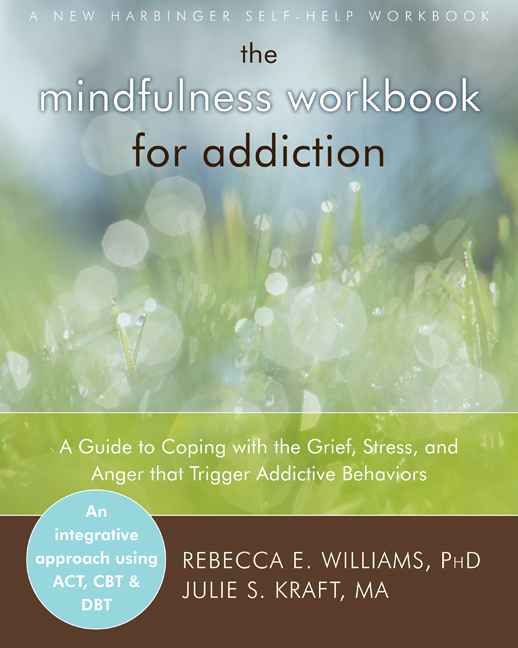By Rebecca E. Williams, PhD and Julie S. Kraft, LMFT
A therapist friend of mine chooses not to treat clients with substance abuse problems. He says, “I just don’t get it. They are clearly ruining their lives; can’t they just stop drinking or using?” Even professionals have a hard time understanding the repetitive patterns of substance dependence. Here are the five things your addicted client wants you to know:
1. The addictive behavior is serving a purpose. Your client’s addiction is most likely covering up destructive thoughts or painful emotions (or both). Thoughts like, I don’t deserve a good life, or, Bad things always happen to me, can be disarming. Emotions like anxiety, anger, loneliness, and sadness can be debilitating. Use cognitive-behavioral techniques to uncover the primary thoughts and emotions that may be getting in the way of recovery.
2. The addictive behavior is rooted in loss. Loss of any kind can leave clients off balance and searching for ways to numb their feelings. When drugs or alcohol enter the picture as ways to cope with loss, chances are things will get worse. It’s no coincidence that using substances to manage loss will actually create more loss! This loss-addiction cycle can be broken by working to develop healthy coping skills to manage loss.
3. The addictive behavior sabotages self-care. Self-care is a phrase used by lots of therapists, but clients with addiction may need more time to explore what it means to take care of themselves. Explore what barriers are getting in the way of your clients truly taking care of themselves. Start with asking about sleep, healthy eating, and exercise. Don’t forget to ask your clients about pleasant activities they might be willing to do without alcohol or drugs.
4. The addictive behavior shatters important relationships. It doesn’t take an expert to see that relationships can be strained when addictive behaviors take hold of a person. Your clients may be harboring sadness, resentment, and shame about how they have acted with friends, family members, and loved ones. The first step is to develop strategies to heal splintered relationships. Communication skills provide the foundation here. The next step is to begin to build a new, healthy support system.
5. The addictive behavior clouds personal values. Allowing the clouds to pass by in order to feel the warmth of your clients’ personal values is powerful. Rediscovering values such as family, work, finances, learning, honesty, faith, and giving back can have a long-term positive outcome on recovery from addictive behaviors.So, the next time you feel frustrated that your client is engaged in a repetitive pattern of destructive behavior, take a moment to review these five things they want you to know.
 Rebecca E. Williams, PhD, is a clinical psychologist specializing in recovery from mental illness and addictions. She is currently a clinic director at the Veterans Affairs San Diego Healthcare System. In addition, she is an associate clinical professor in the Department of Psychiatry at the University of California, San Diego, and an adjunct faculty member at the University of San Diego.
Rebecca E. Williams, PhD, is a clinical psychologist specializing in recovery from mental illness and addictions. She is currently a clinic director at the Veterans Affairs San Diego Healthcare System. In addition, she is an associate clinical professor in the Department of Psychiatry at the University of California, San Diego, and an adjunct faculty member at the University of San Diego.
Julie S. Kraft, LMFT, is a licensed marriage and family therapist. She currently treats clients with both addiction and mental health concerns at Sharp Mesa Vista Hospital and has a private practice in San Diego, CA.

 2024 Peace Playbook: 3 Tactics to Avoid Clashes with Your Partner
2024 Peace Playbook: 3 Tactics to Avoid Clashes with Your Partner